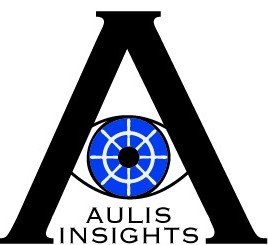Over the span of my career, which incorporated seagoing capacities on dry cargo and tank vessels, including 15 years as master on tankers, followed by periods in safety management, post-fixture management, P&I Correspondency with associated surveying and investigation, bulk carrier vetting, and legal technical support, I have developed a wide array of skills which are used to assist clients and courts during dispute resolution. Some of the main skills are shown below.
Maritime Skills
-
Skills from Seagoing Experience
During a long career at sea, I developed sound knowledge and capabilities in navigational matters and seamanship and use that knowledge to gain an understanding of events surrounding maritime casualties. When interviewing masters and navigation officers, I have a complete understanding of what their stated intentions were and whether or not they were realistic or indeed, credible. I am familiar with the strengths and weaknesses of bridge equipment and can analyse VDR, AIS and ECDIS recordings. I can also decrypt AIS messages in order to gain a full appreciation of surrounding traffic, should that not be readily available in the other recordings.
Having spent 23 years on tankers, I am very familiar with the processes involved in the safe loading, discharging and carriage of petroleum and its products, including inerting and crude oil washing. I understand common faults which can lead to contamination and losses and am able to graphically show how such problems can occur. I am familiar with ASTM tables and API/EI standards.
-
Skills from Post-fixture Management
The skills required in this field were largely an extension of those developed and employed by a master in command. They required both a commercial and technical awareness in order to ensure that a charter was accomplished in an effective and cost-effective manner. The skills included the use of voyage monitoring and voyage analysis tools, which I still use today.
-
Skills from Safety Management
My first tasks after induction into the company’s safety department in Hong Kong in early 1994 was to edit and revise the SOPEP and VRP manuals for the tanker fleet and complete the USCG approval process. In tandem with that, I attended several ISM workshops and set about writing the policy and procedure manuals for the Hong Kong managed vessels. These tasks naturally increased my understanding of the regulatory processes and also the importance of clear procedures for shipboard use. Since then, I have attended approved casualty investigation workshops to broaden my knowledge in this field.
-
Skills from P&I Correspondency
This phase of my career reintroduced me to dry cargo vessels and bulk carriers in addition to my involvement with tankers. I did everything from pre-entry condition surveys, pre-purchase condition surveys, pre-steel loading and discharge, draught surveys, cargo surveys, cargo shifting, cargo damage, cargo contamination – wet and dry, oil losses, bunker disputes, pollution, fire, grounding, allision, collision, foundering, loss of stability, passenger ship safety surveys, injuries and fatalities. I was also involved in special projects and acting as expert witness. During this period, I also conducted numerous Rightship vetting surveys on bulk carriers and in the offices of companies managing such vessels and helped develop the early Rightship questionnaires. I also conducted ISM training seminars for a number of institutions.
-
Skills from Legal Support
During my 6 years with Clyde & Co. I was required to provide technical support to lawyers which meant that I reviewed and analysed a matter then wrote up the results of my analysis and ensured that the lawyers fully understood my position. This necessarily involved digging deep into data and simplifying the results so that they appeared in digestible form for clients and courts. On occasion, I wrote expert witness reports for others to present in court and from time to time, appeared in court myself. I became familiar with the various Rules of Court and keep abreast of the requirements and recommendations for such institutions.
-
Computer Skills
Since 2003, I have developed 2D and 3D graphical computer skills in order to present situations in a way that can be readily understood by parties who may not have detailed maritime knowledge and experience. On occasion, the resulting motion graphic has been used in Court, but my main aim is to help me understand a situation in all its complexity and to explain the situation to others. I have also, on one occasion, used a simplified 3D arrangement to assist a watch keeping officer explain to me the movement of a collided vessel. In order to hone these skills, I have attended several courses at Temasek Polytechnic in Singapore. Some parties are more comfortable with traditional course and speed presentation and I can provide that in the form of graphs. Usually, I do both. Examples of my work are included on the Activities page.

